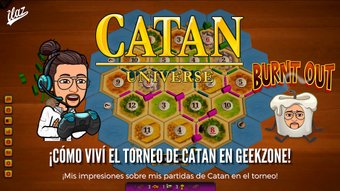Understanding Belief and Action: Aligning with Ancient and Modern Thinkers
0
About :


People illustrations by Storyset
It has been my dream to know more about why human beings do what they do for a long time in my life. When I was in pre-university, I started to get the hint that it was found somewhere in statistics. So I used to count the number of times I would see patterns in behavior, such as the number of times I would lie, how hard it was for me to get up from bed, and why it was hard for me to get up from bed, and the like.
There was a pattern associated with it...the prevailing belief conducted my actions. If I was scared of someone's action - meaning I was not really sure of what they would do (because of the wide variability in the person's options), I had a higher tendency to lie to them. This is why we are less likely to lie to our friends than we are to our parents as children.
On the days it was hard for me to get up from bed, I examined my thoughts and found that there was a recurring pattern also. The most important factor was if I slept well enough, but a recurring theme was also how important I saw what I was doing when I woke up.
This is a very important concept that I was developing - my beliefs dictate my actions - but is that true?
The Greeks and Romans

Work illustrations by Storyset
When I was younger, I also started to get very engrossed in Greek culture, and I wanted to live in Greece because my thought was that if I knew more about their ways, I would understand science and measurement more.
Who would have thought that they also were puzzled about belief the way I was. Although I was pondering mostly in my toilet and bathroom, the ancient Greek philosophers pondered as they fought for their life.
Among those who brought humans to an understanding about belief and actions were the ancient Greek philosophers Plato and Aristotle, who dug deep into what belief and knowledge were. These were in the era before Christ.
In the Middle Ages

People illustrations by Storyset
Those who understood belief and actions saw them more through the lens of religion. Prominent among them were the Christian theologians (St. Augustine and Thomas Aquinas), the Islamic, and the Jewish philosophers.
Their contribution to belief was to uncover the purely faith-based nature of belief.
In the 17th and 18th centuries, it was the period of empirical knowledge, and it was applied in the understanding of belief. John Locke and David Hume brought mankind to the understanding of the origin and the nature of belief. They took belief away from faith and brought it back to academia.
Modern Times

People illustrations by Storyset
Much of what is applied in understanding and fixing problems related to belief were brought to us by the more modern thinkers of the 19th and 20th centuries, like William James and Sigmund Freud.
Without them examining belief, there would be no application in modern psychology and psychiatry. They applied the crude knowledge gathered by the ancient philosophers and theologians (often times from different languages) into their practice and made detailed documentations of facts that apply to this day.
Because of what they thought, the world other theories about belief began to emerge that associated belief and attitude change, as seen from the social psychologist in the mid-20th century, like Leon Festinger and Fritz Heider. There were also theories around the development of belief in children and adolescents explored by Jean Piaget and Lawrence Kohlberg, the cognitive psychologist.
Cognitive Dissonance

People illustrations by Storyset
In the 1950s, while cognitive psychologists were working, Leon Festinger, a social psychologist found that there was a separate relationship between belief and action that needed to be examined.
He found that when a person's belief and action do not align, it creates discomfort or dissonance. People will go to different lengths to stop the discomfort, including changing their belief.
Take for example a smoker who knows that smoking is unhealthy. They may experience cognitive dissonance while they smoke and continue holding this belief. They may say that they only smoke occasionally to reduce the discomfort, but over time, continuous rationalization will lead them to believe something different about smoking.
If applied in reverse, when the smoker avoids smoking and reduces the frequency as time goes by, their belief about smoking begins to change.
This is why fitness trainers say "just show up" to the gym. It makes all the difference when you put in the work.
The application of cognitive dissonance is used in social psychology, although there is a lot of debate on the extent to which it can be applied.
Conclusion
In conclusion belief and action are closely intertwined, with beliefs often dictating actions. The ancient Greek philosophers, Christian theologians, and modern thinkers have all contributed to our understanding of belief.
Cognitive dissonance is the discomfort that arises when beliefs and actions don't align, can lead to changes in belief. This concept is used in social psychology, though there is debate about its application.
What are your beliefs? How do they apply to the results you want to see in yourself? Do you experience cognitive dissonance? Are you doing what you are supposed to be doing?
If you're not, stay tuned to my blog as we help each other build better thoughts and behaviors and make informed decisions together.
Understanding Belief and Action: Aligning with Ancient and Modern Thinkers is a property of Dr Kigigha Ebingo Lovet.

References
Tags :
Their limit for today is $0!




























Comments:
Reply:
To comment on this video please connect a HIVE account to your profile: Connect HIVE Account